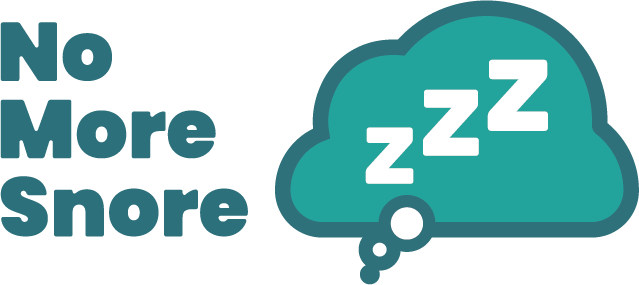Have you ever wondered why you feel sleepy at night and awake during the day? Or why jet lag leaves you feeling disoriented? The answer lies within your body’s circadian rhythm, like an internal clock, this intricate system regulates our sleep-wake cycles, hormone production, and overall bodily functions.
What is Circadian Rhythm?
The term “circadian” is derived from the Latin words “circa” (meaning “around”) and “diem” (meaning “day”), reflecting the roughly 24-hour cycle that characterizes this biological rhythm. Our circadian rhythm is regulated by a master clock located in the suprachiasmatic nucleus (SCN) of the brain, which responds to light signals received through the eyes. The SCN synchronizes various peripheral clocks found in organs and tissues throughout the body, ensuring that they operate in harmony.
Importance of Circadian Rhythm
A well-functioning circadian rhythm is vital for optimal health and performance. It helps regulate the timing and quality of our sleep, which is crucial for physical and mental restoration. Moreover, a robust circadian rhythm ensures the timely release of hormones, such as melatonin, cortisol, and growth hormone, which influence numerous bodily functions. Disruptions to this rhythm can have profound effects on our well-being.
Effects of Circadian Rhythm Disturbance
Sleep Disorders: One of the most apparent consequences of circadian rhythm disturbance is the development of sleep disorders, such as insomnia, sleep apnea, and shift work disorder. These conditions disrupt the normal sleep-wake cycle, leading to insufficient or poor-quality sleep, daytime sleepiness, and impaired cognitive function.
Mood and Mental Health: Circadian disruption has been associated with an increased risk of mood disorders, including depression and bipolar disorder. The irregular release of neurotransmitters and hormonal imbalances due to disturbed circadian rhythms can contribute to mood instability, emotional disturbances, and impaired cognitive performance.
Metabolic and Cardiovascular Issues: Disruptions to the circadian rhythm have been linked to metabolic disorders, such as obesity, insulin resistance, and type 2 diabetes. Additionally, individuals with irregular sleep schedules or night-shift work may experience higher rates of cardiovascular problems, including hypertension and an increased risk of heart disease.
Impaired Cognitive Function: Disturbed circadian rhythm can lead to cognitive impairments, affecting attention, memory, and executive function. Sleep deprivation resulting from circadian disturbances can impair learning abilities, decision-making processes, and overall cognitive performance.
Disrupted Hormonal Regulation: Hormones play a crucial role in maintaining various bodily functions, and their release is intricately linked to the circadian rhythm. Disruptions to this rhythm can disrupt hormone production and secretion, leading to imbalances that affect fertility, sexual health, and overall hormonal well-being.
Effects of Circadian Rhythm Disturbances on Sleep
Insomnia: A disrupted circadian rhythm can cause difficulty falling asleep or staying asleep, resulting in chronic insomnia. This condition can lead to daytime fatigue, impaired cognitive function, and mood disturbances.
Shift Work Sleep Disorder: Individuals who work irregular or night shifts often face challenges in maintaining a consistent sleep schedule. This misalignment between their work schedule and circadian rhythm can result in excessive sleepiness, reduced alertness, and increased risk of accidents.
Social Jet Lag: Disrupting our natural sleep-wake patterns on weekends or due to social activities can lead to social jet lag. This phenomenon, akin to experiencing a mini jet lag, can cause fatigue, decreased concentration, and a higher likelihood of making mistakes.
Mood Disorders: Disturbances in the circadian rhythm have been linked to mood disorders such as depression and bipolar disorder. Disrupted sleep patterns can exacerbate these conditions and hinder recovery.
Disturbed Sleep and Circadian Rhythm Disruption: Disruptions to our sleep patterns can result from various factors, including irregular work schedules, jet lag, exposure to artificial light at night, excessive screen time, and sleep disorders like insomnia or sleep apnea. These disturbances can disrupt the synchronization between our internal body clock and the external environment, leading to a misalignment of our circadian rhythm.
Impact on Physical Health
Impaired Cognitive Function: Disrupted sleep can impair cognitive abilities such as attention, memory, and decision-making. It can also affect reaction times and motor coordination, increasing the risk of accidents and injuries.
Metabolic Dysregulation: Studies have shown that disturbed sleep can disrupt metabolic processes, leading to an increased risk of obesity, diabetes, and cardiovascular diseases. It can alter appetite-regulating hormones, promote unhealthy food cravings, and negatively impact glucose regulation.
Weakened Immune System: Adequate sleep is crucial for a healthy immune system. Disruptions to sleep patterns can impair immune function, making individuals more susceptible to infections, viruses, and chronic illnesses.
Impact on Mental Health
Mood Disorders: Disturbed sleep can contribute to the development or exacerbation of mood disorders such as depression and anxiety. Sleep disruptions can disrupt the balance of neurotransmitters and increase emotional reactivity.
Cognitive Decline: Chronic sleep disturbances have been linked to an increased risk of cognitive decline and neurodegenerative disorders like Alzheimer’s disease. Sleep plays a vital role in memory consolidation and the removal of toxic metabolic byproducts from the brain.
Impaired Emotional Well-being: Sleep deprivation can lead to emotional instability, irritability, and difficulty managing stress. It can also decrease resilience and impair coping mechanisms, negatively impacting overall emotional well-being.

